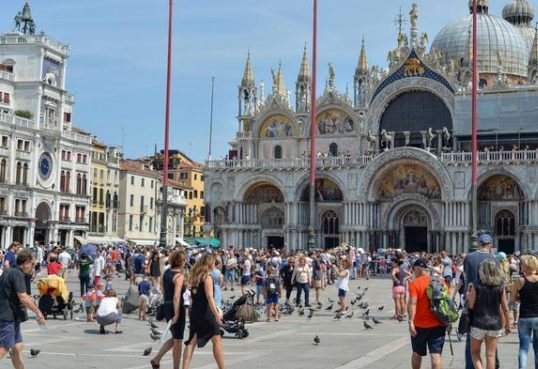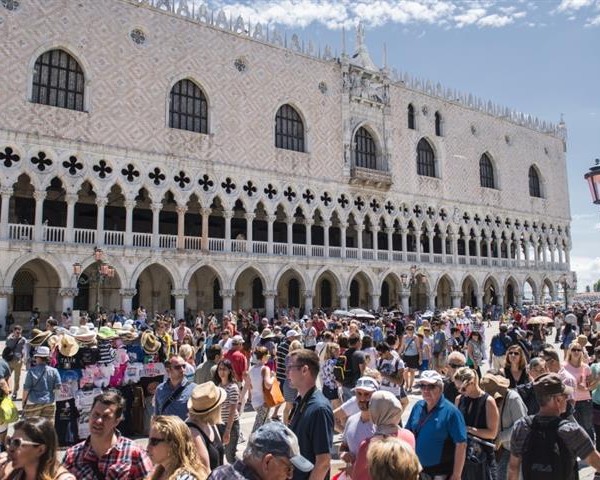What is tourism? Tourism is basically the activity of people getting out of where they usually live, living in another area, other country or maybe other town because sometimes the life, culture of people that are in the same country but in the different town can be different. The countries or towns that have more tourists are generally more ancient countries or towns because when a place is ancient, people want to learn about past, how people lived there, cultures that exist for years, so tourists go more to ancient places. But sometimes people want to see countries, towns that have the highest level of technology like Tokyo which is in Japan. Tourism has a lot of types like Domestic Tourism, Leisure Travel and more. Today we will be talking more about mass tourism and limiting mass tourism.
What is mass tourism? Mass tourism is a very popular type of tourism. Mass tourism occurs when people visit touristic places around the world by large groups. Mass tourism is often the cheapest way of tourism. This type of holiday is often sold in cheap package deals. A lot of people buy/book those package deals through websites. Because it is cheap, it is one of the most popular tourism types. Because of the popularity and income of mass tourism, there are a lot of companies around the world that help people book cheap holidays.
So, we talked about some of the advantages of mass tourism but let’s talk about the disadvantages of mass tourism. First of all, when a lot of people go to the same place at the same time, they create a crowd, a lot of noise and long lines. Because of that some people do not prefer touristic places that include mass tourism.
Many cities around the world will limit mass tourism. If I was the Minister of Culture and Tourism in my country, Turkey, I wouldn’t limit mass tourism because the tourism in Turkey is one of the biggest income resources. If I limit mass tourism, the economy of my country would be worse. So, that is why I wouldn’t limit mass tourism in Turkey as a Minister of Culture and Tourism.

